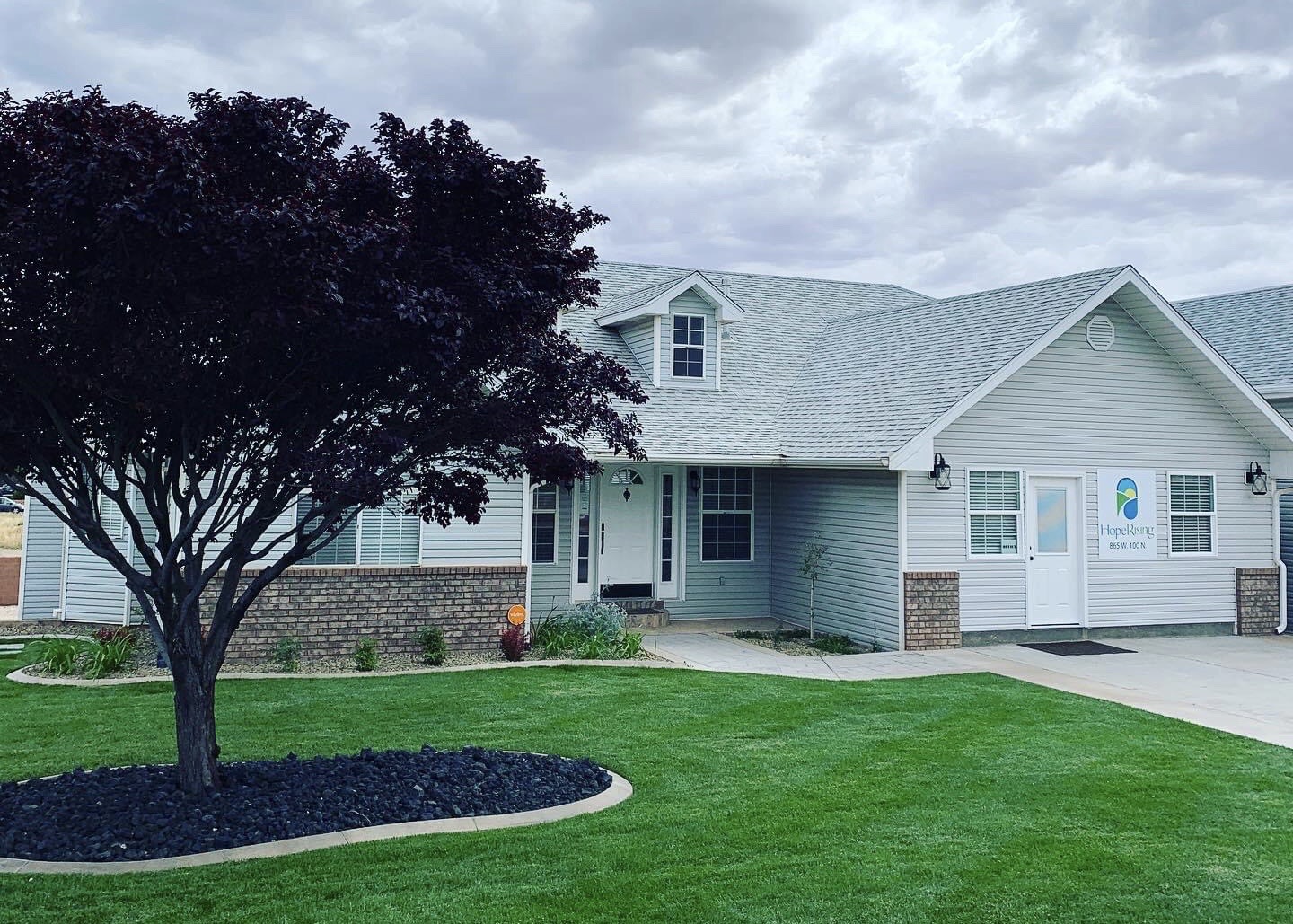CONTRIBUTED CONTENT — Understanding the challenges of getting treatment, a high-end treatment center located in Southern Utah is giving back to the community by offering scholarships to people struggling with substance abuse and mental health issues.

“We want to offer these scholarships to give people a chance to participate in our program that don’t otherwise have the financial means,” said Ty Empey, admissions coordinator for Hope Rising Detox & Rehabilitation. “The financial piece is always an issue when somebody is trying to get help. They might not have the right kind of insurance, or they might not have the funding to come to a program as nice as ours.”
Although Hope Rising has offered scholarships in the past on a case-by-case basis, this is the first time they have opened scholarships to the public. The center will award a scholarship for a male and a female to experience the entire program, including all four levels of care: detox, residential, day treatment and intensive outpatient therapy.
Applicants can call the center to apply for the scholarships at 435-632-3335. Scholarships will be awarded at the end of December, and the recipients will be able to start treatment on Jan. 1.
The four levels of treatment start with detox, which is for someone actively using drugs and in situations where there’s a risk of them experiencing severe withdrawal symptoms.
“If people are using drugs or alcohol every day and were to just stop, they could have some pretty scary withdrawal symptoms, like severe nausea, seizures, heart problems and other things of that nature,” Empey said.
The detox phase usually lasts about a week, and clients need to be medically supervised by doctors during the process.
“It makes that transition from using drugs to not using drugs nice and easy. There’s a medical component where they’re able to take medication to help taper them off, so their body comes down nice and slow, instead of just cold-turkey shock,” Empey said.
After detox, the second step is the inpatient program, also known as the residential program. This portion usually lasts about a month or more. The client moves into the residential house where they participate in group therapy, individual therapy, education and activities, including paddle boarding, swimming, yoga, art therapy, gym time and hiking in Zion National Park and Snow Canyon State Park.
“It’s a therapeutic environment where they’re safe from the world,” Empey said. “Clients are away from family, friends, cell phones and all of those distractions.”
Once they’ve completed the inpatient stay, the next level is day treatment. Clients come to therapy during the day and are able to go home in the evenings, which allows them regain a bit of freedom while slowly reintroducing them back into their life. But they are still required to be in classes and group therapy, individual therapy, and activities.
The last level of care is intensive outpatient therapy, providing ongoing stabilization for another three to six months. Clients come to the outpatient building a couple of nights a week for counseling and therapy.
“In the beginning, we’re focused on their medical situation. We want to make sure that they’re stable, they’re safe and that there are no medical concerns,” Empey said. “Then the residential piece is to keep them stable in a safe environment very early on. Then we start to reintroduce them back into a regular daily living schedule.”
Hope Rising is different from other treatment centers in that they have a doctor in-house who can prescribe medications for mental health needs.

“It’s one thing to treat the substance abuse, but if we don’t address the mental health, then it makes it really hard for a person to stay away from substances,” he said. “If a person’s mental health is not at a good point, then that’s why they end up self-medicating because they’re not feeling OK in one way or another.”
Hope Rising’s motto is ‘Find Your Family,’ which Empey explained is three-pronged. First, they help people find family members lost in addiction. When clients enter their program, they will find a family in the staff members. And once they complete treatment, they’re able to find their own families again.
“We will love them like family to help them get back to their family,” he said.
Written by STEPHANIE DEGRAW for St. George News.
• S P O N S O R E D C O N T E N T •
Resources
- Hope Rising Detox & Rehabilitation | Address: 865 W. 100 North, Hurricane | Telephone: 435-632-3335 or 435-375-3357 | Email: [email protected] | Website.
Copyright St. George News, SaintGeorgeUtah.com LLC, 2021, all rights reserved.